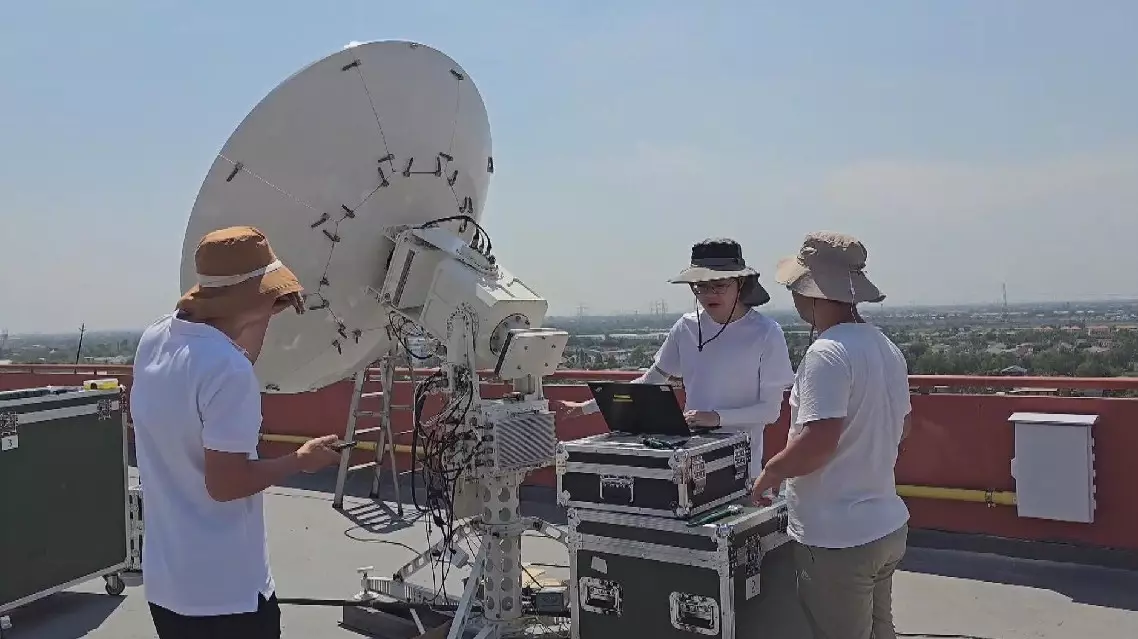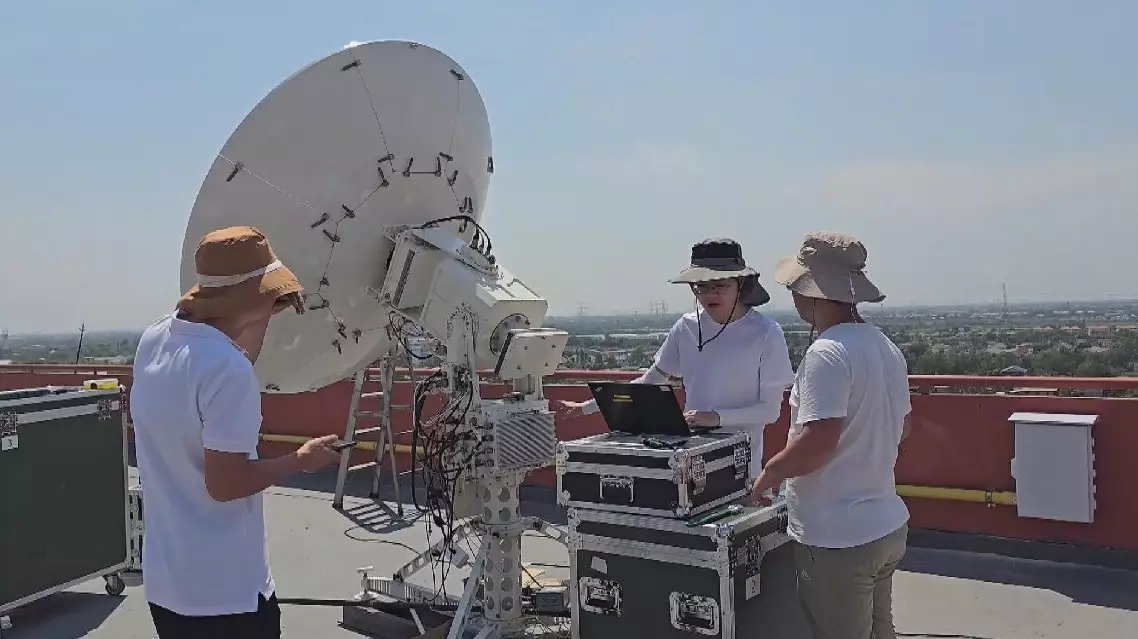A private Chinese commercial space company, in collaboration with a Thai university, has conducted the first trial of a low-orbit satellite internet broadband communication network successfully in Thailand.
The achievement marks the first overseas application and exploration of China's low-orbit broadband satellite internet.
GalaxySpace, a private satellite maker in Beijing, established a ground test station at the Mahanakorn University of Technology in Thailand, based on low-orbit broadband internet. It can continuously observe the communication capabilities of millimeter-wave satellite signals in local weather conditions.
Supansa Keckley, director of the satellite research laboratory of the Mahanakorn University of Technology, said the satellite provides a platform for local enterprises and universities to study LEO satellite communication systems, which will support Thailand's satellite manufacturing, satellite network construction and operation industries in the future.
"GalaxySpace brings advanced satellite internet technology that is innovative and exciting. We have jointly set up a test system and conducted a series of technical tests and trials, which strongly supports Thailand's research into satellite internet applications and, more importantly, further builds our capacity in the field of aerospace technology," he said.
A LEO satellite is a satellite that orbits at or below 2,000 km and can be used to provide internet service to remote areas without the need for underground cables or network towers. Compared to traditional satellite setups, LEO satellite internet has low latency and reduced costs.

China's low earth orbit satellite broadband internet applied overseas for first time

China's low earth orbit satellite broadband internet applied overseas for first time
China is accelerating the commercialization of marine scientific and technological achievements and fostering new quality productive forces by boosting support for small and medium-sized enterprises (SMEs) in the marine sector, with a focus on investment and financing to drive industry growth.
The development of marine industries is marked by substantial investments, high risks, and slow returns. However, with strong national support, some companies, such as Zhejiang Startest Marine Science and Technology Co., Ltd. in east China, have achieved notable success.
The company is a national high-tech enterprise specializing in the independent research and development of underwater sonar detection equipment and underwater information data systems.
It now holds more than 210 intellectual property rights for its designs.
"We are now fully capable of replacing similar foreign imported products with our own ones, thereby overcoming the bottleneck in production caused by foreign product embargoes," said Su Xiaoyang, president of Zhejiang Startest Marine Science and Technology Co., Ltd.
While some marine SMEs, such as Shenzhen HiCloud Data Center Technology Co., Ltd., China's first underwater data center equipment and service provider, have mastered core technologies, a gap remains compared to international standards. As a result, continuous investment is necessary for them to overcome critical technological challenges.
"The Underwater Data Center Pilot Project is a new infrastructure initiative requiring a significant initial investment and scale effects. However, both users and investors in the market still lack a comprehensive understanding of the project's strategic significance, including the technical risks associated with emerging technologies," said Pu Ding, general manager of the Underwater Data Center Pilot Project in Hainan under Shenzhen HiCloud Data Center Technology Co., Ltd.
To address the challenges faced by marine SMEs in securing investment and financing, the Ministry of Natural Resources (MNR), along with the Shenzhen Stock Exchange, has organized a series of roadshows since 2016. Over 200 marine SMEs and innovation teams have participated, securing more than 3 billion yuan (around 409.8 million U.S. dollars) in financing.
In addition to these efforts, the MNR, in collaboration with the Shanghai Stock Exchange, launched China Ocean Economy Stock Price Index in 2024, covering 20 marine and related industries.
"This is the first domestic comprehensive index in the marine sector, covering all the markets of Shanghai, Shenzhen, Beijing, and Hong Kong. It provides timely insights into the operational performance of listed companies in the marine industry and plays an important role in promoting the efficient allocation of financial capital to the marine real economy," said Feng Lei, deputy director of the Ocean Strategic Planning and Economic Department under the Ministry of Natural Resources.

Small marine firms accelerate commercialization of sci-tech achievements under greater policy support











